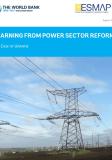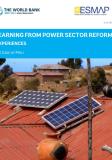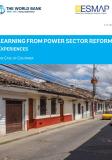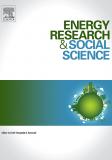Publications
This document offers guidelines for the preparation of feasibility studies for geothermal power projects in accordance with best industry practices.
A geothermal feasibility study is a document, prepared by the project developer, that collects and presents information necessary to determine the technical and financial viability of a geothermal energy project and its compliance with environmental and social safeguards. In a broad sense, a feasibility study is a living document that evolves over the course of the project preparation phase. Such studies may also have specific purposes, such as to guide the internal business decisions of a project’s owners or to demonstrate the economic viability of a project and its alignment with the country´s energy strategy to public stakeholders. The guidelines presented here refer, specifically, to feasibility studies prepared for the purpose of securing financing, both debt and equity. A project developer prepares a feasibility study using reliable data so that financiers can assess the risks associated with a project.
A feasibility study should identify the main risks and describe how they will be managed. A necessary condition for receiving funding is that financiers can assess project risks and their magnitude and whether these are in a range they are willing to accept. The guidelines offered in this document have two purposes. The first is to help project developers understand the required content and structure of a feasibility study. The second is to suggest how financing entities may assess whether a feasibility study is of adequate quality and scope.
The topics addressed in a feasibility study for any power generation project are quite similar irrespective of the energy conversion technology. However, several aspects of geothermal projects set them apart from other power generation projects. For example, geothermal projects need significant investments in drilling relatively early in the project lifetime to reduce resource uncertainty. Even though the focus here is on geothermal projects for electricity production, most of the recommendations presented are equally valid for direct-use geothermal projects.
Hallgrimsdottir, Elin; De Wit, Joerie Frederik; Fridriksson, Thrainn; Ingimundarson, Ari; Axelsson, Gudni; Steingrimsson, Benedikt; Ingason, Ingi; Arnason, Olafur.2021.
Preparing Feasibility Studies for the Financing of Geothermal Projects : An Overview of Best Practices (English). Washington, D.C. : World Bank Group. http://documents.worldbank.org/curated/en/733791626931398765/Preparing-Feasibility-Studies-for-the-Financing-of-Geothermal-Projects-An-Overview-of-Best-Practices



